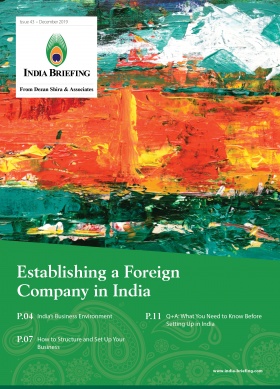Tax Audit Report for AY 2020-21 in India: Some Considerations
- Latest Update: The deadline for furnishing various audit reports under the Income Tax Act, including the tax audit report and report with respect to international/specified domestic transaction, has been extended to December 31, 2020 from the earlier extended deadline of October 31, 2020.
- The deadline for individual taxpayers for submitting their tax returns (who need to get their accounts audited) has been extended to January 31, 2021.
- Small taxpayers and those with a tax liability of up to INR 100,000 based on self-assessment now have until January 31, 2021 to file their returns. General taxpayers have until December 31, 2020 to file their income tax returns for income earned between April 1, 2019 and March 31, 2020.
- The tax audit report for AY 2020-21 in India must reflect if the taxpayer has availed any tax concessions, such as the recently introduced corporate tax cuts, and as applicable to domestic companies, new manufacturing companies, individuals, Hindu undivided family units, and cooperative societies.
Since the last fiscal year, the Indian government has introduced tax cuts and other business-friendly reforms to revitalize market sentiment in the country, boost the manufacturing sector, increase domestic liquidity, and attract greater foreign investment.
As companies in India finalize their tax audit reports for assessment year (AY) 2020-21, it is important to pay attention to the applicability of recent tax concessions, which must be accurately reflected in corporate accounting records and bookkeeping.
Extended deadlines as of October 24, 2020
- The last date for furnishing various audit reports under the Income Tax Act, including the tax audit report and report with respect to international/specified domestic transactions has been extended to December 31, 2020 from the previous extended deadline of October 31, 2020.
- The deadline for individual taxpayers to file their ITR returns (who need to get their accounts audited) has been extended to January 31, 2021. “The due date for furnishing of Income Tax Returns for the taxpayers (including their partners) who are required to get their accounts audited [for whom the due date (i.e. before the extension by the said notification) as per the Act is 31st October, 2020] has been extended to 31 January, 2021,” said the tax regulatory body, CBDT.
- “The due date for furnishing of Income Tax Returns for the taxpayers who are required to furnish report in respect of international/specified domestic transactions [for whom the due date (i.e. before the extension by the said notification) as per the Act is 30th November, 2020] has been extended to 31st January, 2021.”
- The due date for payment of self-assessment tax for taxpayers who need to furnish audited accounts or report specified transactions has been extended to January 31, 2021.
- Small taxpayers and those with a tax liability of up to INR 100,000 based on self-assessment now have until January 31, 2021 to file their returns.
- No relief will be provided on the interest chargeable under section 234A if the taxpayer’s liability/self-assessment exceeds INR 100,000, if the ITR is not filed before the due date, that is, October 31, 2020.
- The CBDT also announced that general taxpayers have until December 31, 2020 to file their income tax returns for income earned between April 1, 2019 and March 31, 2020; previously, the deadline was extended to November 30, 2020.)
For more information and tax assistance for foreign firms doing business in India, please feel free to email us at india@dezshira.com.
Reduction to the corporate tax rate and its implications
The Taxation Laws (Amendment) Act, 2019 replaced The Taxation Laws (Amendment) Ordinance, 2019 that was promulgated on September 20, 2019.
The Amendment Act, which was signed into law by the president on December 11, 2019, formalizes lower tax rates for corporate taxpayers and the roll-back of increased surcharge for foreign portfolio investors (FPI).
Including surcharge and cess, domestic companies and new manufacturing companies opting for the new tax rates will be required to pay tax at the rates of 25.17 percent and 17.16 percent, respectively.
Before the September Ordinance, the statutory tax rates for domestic companies ranged from 26 percent to 35 percent; however, these companies could reduce their effective tax liability by claiming deductions under the Income Tax Act, 1961.
Corporate tax reduction for companies incorporated in India
The Taxation Laws (Amendment) Act, 2019 inserts two new sections to the Income Tax Act – namely Section 115BAA and Section 115BAB, which affects the tax incidence on domestic companies.
Under Section 115BAA, as of FY 2019-20, domestic companies in India can opt for a new reduced tax rate of 22 percent (plus applicable surcharge and cess) – if they do not take advantage of specified exemptions or already benefit from relevant tax incentives. This is to ensure fair tax liability for all companies based on their turnover and expenses.
If companies are benefiting from specified exemptions and/or incentives, they are allowed to wait till those beneficial provisions expire, before transitioning to the new tax rate.
However, once the company chooses the new tax rate under Section 115BAA – they cannot subsequently opt out.
MAT liability
Companies that opted for the new tax rate in FY 2019-20 should note that the provisions relating to minimum alternate tax (MAT) and MAT credit will no longer apply to them. MAT is the minimum amount of tax that a company is obliged to pay in case its normal tax liability after claiming deductions falls below a certain threshold.
Companies that did not choose the new tax rate will also benefit from a reduced MAT rate, with effect from FY 2020-21. The MAT rate has been reduced from 18.5 percent to 15 percent.
Corporate tax reduction for new manufacturing companies
The Amendment Act introduced a reduced tax rate of 15 percent (plus applicable surcharge and cess) for new manufacturing companies via the insertion of Section 115BAB.
To qualify for the new tax rate, manufacturing companies must meet the following criteria:
- The company was set-up and registered on or after October 1, 2019 and commenced the manufacture or production of an article or thing on or before March 31, 2023.
- The company was not formed by the splitting up of an existing business or an outcome of company restructuring.
- The new manufacturing company does not use machinery or plant used by it previously for another purpose.
- The company is not engaged in any business other than the business of manufacture or production of any article or thing and research in relation to, or distribution of, such article or thing manufactured or produced by it.
- The company does not avail any specified exemptions or incentives.
The Section clarifies what business activities are not considered for the concessionary tax rate, which includes the development of computer software in any form or in any media, mining, conversion of marble blocks or similar items into slabs, bottling of gas into cylinder, printing of books or production of cinematograph film, or any other business as may be notified by the central government in this behalf, etc.
Again, once the company chooses to apply for tax assessment based on the new tax rate under Section 115BAA – they cannot subsequently opt out.
MAT liability
Companies choosing the new tax rate will be exempt from MAT.
Concessional tax regimes for individuals, cooperative societies, and other entities
The Finance Act, 2020 inserted Section 115BAC and Section 115BAD to the Income Tax Act, 1961 to introduce a concessional tax regime for individuals, Hindu undivided families, and cooperative societies.
On October 1, 2020, the Central Board of Direct Taxes (CBDT) issued the Income Tax (22nd Amendment) Rules, 2020 – to notify changes in form 3CD (detailed statement of particulars and part of tax audit report) and form 3CEB (accountant’s report relating to transfer pricing provisions applicable to specified domestic transactions exceeding INR 200 million) as well as ITR-6 to accommodate the newly added provisions in Sections 115BA/115BAA/115BAB/115BAC/115BAD of the Income Tax Act, 1961.
The modified forms have inserted extensive new disclosure criteria.
Further, the Income Tax (22nd Amendment) Rules, 2020 has amended Rule 5 of the Income Tax Rules, 1962 and inserted new Rules and Forms namely:
- Rule 21AG – Exercise of option under sub-section (5) of section 115BAC;
- Rule 21AH – Exercise of option under sub-section (5) of section 115BAD;
- Form No. 10-IE – Application for exercise/ withdrawal of option under clause (i) of sub-section (5) of Section 115BAC of the Income-tax Act, 1961; and
- Form No. 10-IF – Application for exercise of option under sub-section (5) of Section 115BAD of the Income Tax Act, 1961.
Rule 5(1), which specified the depreciation of the block of assets to 40 percent, has been substituted by the following in the amended Rules:
“Provided that the allowance under clause (ii) of sub-section (1) of Section 32 in respect of depreciation of any block of assets entitled to more than forty per cent. shall be restricted to 40% on the written down value of such block of assets in certain cases.
- a domestic company which has exercised options under sub-section (4) of Section 115BA, or under sub-section (5) of Section 115BAA, or under sub-section (7) of Section 115BAB; or
- an individual or Hindu undivided family which has exercised option under sub-section (5) of section 115BAC. Thirdly, a co-operative society resident in India which has exercised option under sub-section (5) of section 115BAD; or
- a co-operative society resident in India which has exercised option under sub-section (5) of section 115BAD.
The new Rule 21AG specifies the exercise of option under sub-section (5) of Section 115BAC: “The option to be exercised in accordance with the provisions of sub-section (5) of Section 115BAC by a person, being an individual or Hindu undivided family, for any previous year relevant to the assessment year beginning on or after the 1st day of April, 2021, shall be in Form No. 10-IE.”
The new Rule 21AH specifies the exercise of option under sub-section (5) of Section 115BAD: “The option to be exercised in accordance with the provisions of sub-section (5) of Section 115BAD by a person, being a cooperative society resident in India, for any previous year relevant to the assessment year beginning on or after the 1st day of April, 2021, shall be in Form No. 10-IF.”
About Us
India Briefing is produced by Dezan Shira & Associates. The firm assists foreign investors throughout Asia from offices across the world, including in Delhi and Mumbai. Readers may write to india@dezshira.com for business support in India.
- Previous Article India’s Healthcare Investment Outlook: A Brief Profile
- Next Article Filing Form 3CEB: What You Need to Know







